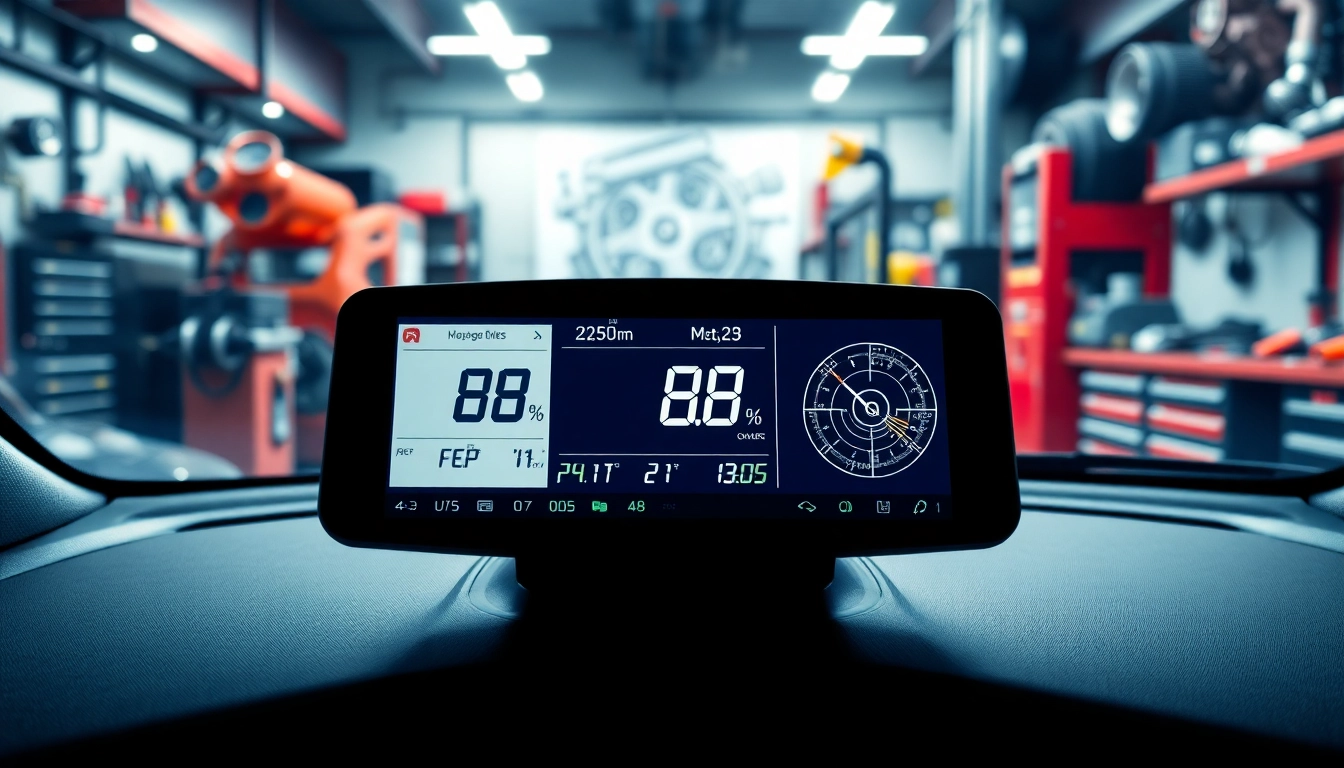Understanding the Horsepower Calculator
What is a Horsepower Calculator?
A Horsepower Calculator is a useful tool that helps individuals estimate the power output of an engine. It is based on fundamental concepts of physics, specifically the relationship between force, distance, and time. By inputting specific parameters related to the engine’s torque and RPM (revolutions per minute), users can determine horsepower, a crucial metric for evaluating an engine’s performance. For those interested in gaining a deeper understanding or getting accurate calculations, accessing an online tool like the Horsepower Calculator can simplify the process significantly.
How Horsepower is Measured
Horsepower (hp) is a unit of measure used to quantify the power of engines and motors. It can be calculated using different formulas, based on mechanical output, including:
- Mechanical Horsepower: Traditionally defined as the ability to do work at a rate of 550 foot-pounds per second.
- Metric Horsepower: Equals approximately 735.5 watts and is commonly used in Europe.
- Brake Horsepower (BHP): The power output measured at the engine’s output shaft before any losses in the transmission.
- Wheel Horsepower (WHP): Measures the power at the wheels, accounting for efficiency losses in the drivetrain.
Understanding these distinctions is vital for accurate predictions of an engine’s performance under various conditions. Different calculations might utilize torque (in foot-pounds) multiplied by engine speed (in RPM) to provide a horsepower value.
Common Calculations with the Horsepower Calculator
Horsepower calculators are versatile and can assist with several calculations, including:
- Estimating horsepower from torque measurements.
- Calculating brake horsepower based on RPM and torque.
- Deducing how weight affects performance through various drag racing calculations.
- Applying rules of thumb for performance upgrades.
These calculators are particularly valuable for racers, automotive enthusiasts, or engineers interested in performance tuning or engine design.
Types of Horsepower Calculators Available
Engines and Torque Calculators
Engine and Torque calculators are specialized tools within the broader category of horsepower calculators. They allow users to input engine torque values and RPM to compute the engine’s horsepower. This is crucial for understanding how changes in tuning or modifications can impact an engine’s performance.
Wheel vs. Engine Horsepower Calculators
There are significant differences between wheel horsepower (WHP) and engine horsepower (BHP) calculators:
- Wheel Horsepower Calculators: These take into account the power lost through the drivetrain to give a more accurate representation of what the wheels are producing. These calculators are particularly useful for racers who need to know how modifications will affect actual race performance.
- Engine Horsepower Calculators: These focus on the power output directly from the engine without accounting for loss. This can give a good baseline for potential but does not reflect actual performance on the road or track.
It is essential to select the correct type of calculator according to the specific needs of the task at hand.
Benefits of Online Horsepower Calculators
Online horsepower calculators offer several benefits:
- Instant Results: Users can obtain results in seconds without needing complex mathematical knowledge.
- User-Friendly Interface: They often come with simple interfaces, making them accessible for anyone, from amateur car enthusiasts to professional engineers.
- Multiple Calculation Options: Many online calculators provide the ability to perform various horsepower calculations (like BHP, WHP, etc.) under different scenarios.
These factors make online horsepower calculators a staple tool for anyone seeking to gauge engine performance.
How to Use the Horsepower Calculator Effectively
Step-by-Step Guide to Inputting Data
To use a horsepower calculator effectively, follow these steps:
- Identify the Needed Parameters: Gather data such as torque, RPM, vehicle weight, or track metrics.
- Access a Reliable Calculator: Choose an online platform that offers a horsepower calculator with the right functions.
- Input the Data: Carefully enter the values. Ensure that all data is in compatible units (e.g., foot-pounds for torque and RPM for speed).
- Submit the Calculation: Hit the calculate button and wait for the result.
By carefully following these steps, you will minimize errors and receive accurate results tailored to your specific situation.
Interpreting the Results
Upon acquiring the results, interpreting them accurately is essential. Here’s how to understand the output:
- Compare Against Benchmarks: Assess the horsepower figure relative to similar vehicles or previous models to determine performance levels.
- Use Power Bands: Understand where your engine’s horsepower peak lies within the RPM range to optimize usage and tuning.
- Adjustment Implications: If adjustments or changes are planned (like adding a turbocharger, for example), estimate potential horsepower increases or changes.
This interpretation provides actionable insights for vehicle modifications and enhancements moving forward.
Troubleshooting Common Issues
Sometimes, users may encounter issues while using horsepower calculators. Common problems include:
- Input Errors: Ensure all data is correctly entered and matches the expected units.
- Misinterpretation of Results: If numbers seem off, double-check your benchmarks and standards.
- Calculator Limitations: Be aware that some calculators might not include all types of calculations or may have preset limits on data input.
Addressing these issues promptly will ensure a smoother experience and accurate evaluations.
Applications of the Horsepower Calculator
Utilizing for Racing and Performance Tuning
Horsepower calculators are heavily used in racing settings. Understanding how changes in torque and RPM affect overall horsepower can give racers the edge needed to excel. This can include:
- Tuning engine parameters for specific tracks.
- Calculating optimal weight distribution for improved traction.
- Assisting in drivetrain upgrades based on performance metrics.
Thus, having effective horsepower calculators is indispensable for any racer looking to maximize their performance.
Impact on Fuel Efficiency
A surprising application of horsepower calculators also lies in assessing fuel efficiency. Engines that produce more horsepower efficiently can lead to better fuel economic performance. Here’s how:
- Measuring optimal horsepower can help inform driving habits that maximize fuel consumption.
- Calculating necessary adjustments to emissions and fuel injectors based on power outputs.
- Helping identify upgrades that lead to both increased horsepower and improved fuel economy.
Overall, being able to derive insights linking performance with fuel efficiency remains crucial for today’s environmentally conscious drivers.
Applications in Engine Design and Development
Engine designers and developers use horsepower calculators extensively during product development. They rely on accuracy in calculations to prototype new engine designs, perform simulations testing various parameters, and predict performance outcomes. Notable applications include:
- Making data-driven decisions for material selections that will enhance horsepower.
- Using simulation results to optimize engine layouts for higher torque outputs.
- Assessment of engine performance versus regulatory benchmarks.
These functions are critical in advancing engineering practices and ensuring safety standards are met appropriately.
Enhancing Accuracy with Best Practices
Data Collection Techniques
To achieve accuracy in your horsepower calculations, effective data collection is paramount. Here’s how you can improve your methodology:
- Use Quality Tools: Utilize accurate measuring tools for torque and RPM.
- Consistency is Key: Ensure that measurements are taken routinely under similar conditions to reduce variations.
- Leverage Technology: Employ data logging devices to capture and store engine performance data continuously.
These techniques will allow for precise inputs and calculable outcomes.
Understanding Environmental Factors
Environmental factors can significantly influence horsepower readings, including:
- Temperature: Colder air can boost engine performance by increasing air density.
- Altitude: Higher altitudes decrease air density, which may lead to lower horsepower outputs.
- Humidity: High humidity can also affect air density and combustion efficiency.
Consider adjusting your calculations based on these variables for a more precise outcome.
Adjusting Calculations for Specific Conditions
When conducting performance evaluations, certain adjustments might be necessary:
- Gear Ratios: Understand how gear changes can affect torque, ultimately impacting horsepower outputs.
- Load Factors: Determine the impact of varying weight loads on engine performance during calculations.
- Systems Configuration: Take into account the specific configurations of performance enhancing mods.
Adjusting for these conditions can yield more reliable horsepower calculations specific to a given scenario.



